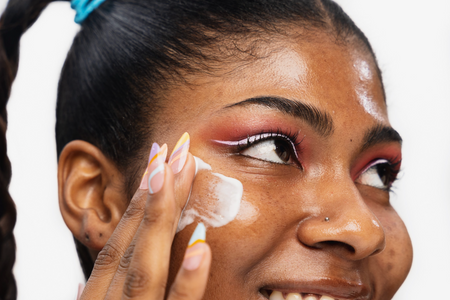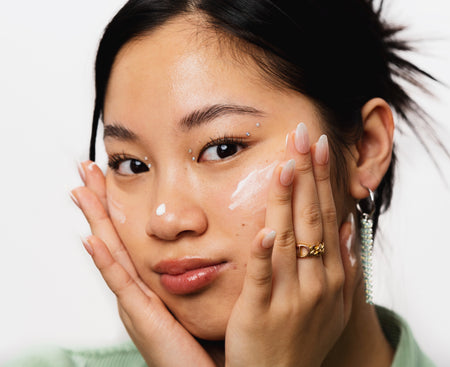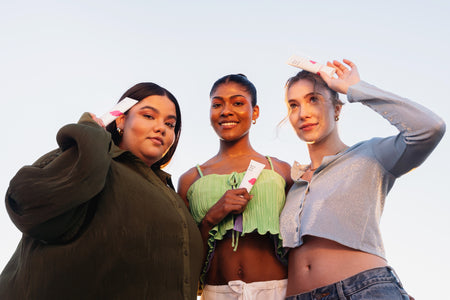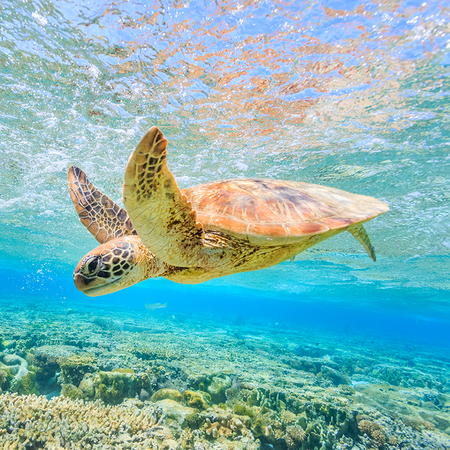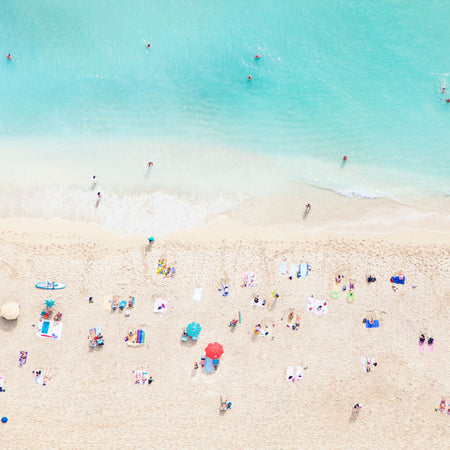Is Sunscreen Damaging Our Oceans?

Hey friends! Liah here. You might’ve clicked on this article because you’re concerned that your sunscreen is harmful to coral reefs and marine life at large. While it’s true that some chemicals in sunscreens may pose a harmful effect on our coral reefs, we’d like to invite you on a deeper dive into what’s really happening.
The reality is that many marine scientists and environmentalists express little to no concern about sunscreen bleaching the coral reefs. Instead, they attribute this mainly to climate change--specifically, rising sea temperatures. An important indicator of this relationship is that the largest coral reef bleaching incidents occur in the regions where there isn’t much tourism or human activity.
Take, for example, Earth’s biggest coral reef system -- the Great Barrier Reef. If it were true that sunscreen is the main culprit of coral bleaching, then it should follow that the southern part of the Reef should be most affected, as that’s where all the tourists go. Instead, as you can see below, the very opposite happens. As a result of an ocean heatwave in 2016, scientists noted that the affected northern parts of the Reef experienced severe coral bleaching. When studied again in 2017, it was found that those elevated sea temperatures had resulted in the die-off of 30% of the Reef.
- What is coral bleaching?
When stressed by changes in temperature, light or nutrients, the coral will expel the symbiotic algae living in their tissues. This will cause the coral to turn completely white and make it vulnerable to disease and death. While bleaching itself will not cause coral to die, they will only survive in the long-term if conditions normalize.
- What causes coral bleaching?
- Rising seawater temperature: Even a rise of just 1 degree Celsius for 4 weeks can trigger bleaching. If ocean temperatures stay high for eight weeks or longer, the coral cannot recover and begins to die (source). Basically, coral bleaching will worsen not only at higher ocean temperatures but also the longer that these temperatures remain elevated (source).
- Acidifying waters: When carbon dioxide is released into the atmosphere, the ocean absorbs some of it, and it forms a mild acid which lowers the ocean's pH level. This change is a serious issue because it interferes with the way marine organisms produce shells or plates from calcium carbonate, which eventually poses a threat to human food supplies (source)
- Increasing sea levels: As glaciers continue to melt due to global warming, sea levels rise, causing corals to get deeper underwater and grow weaker due to less and less sunlight. According to the IPCC, sea levels are increasing at a rate of 0.12 inches per year. That's 60 percent faster than the 0.08 inches per year that they predicted in 2007 (source).
- What about our sunscreens?
Sharing this information with you is not to say that sunscreens have ZERO negative effects on our environment. However, it can be challenging to know which specific sunscreen ingredients are known to be harmful to our coral, or what the exact relationship is between sunscreens and coral bleaching. Our good friend, Michelle from Lab Muffin Beauty breaks it all down over on her blog, and we’d highly encourage you to take a deeper look into what she’s found! Here’s a snippet:
- Harmful: oxybenzone, octinoxate, enzacamene (4-MBC), zinc oxide
- Minimal harm or no effect: octocrylene, octisalate, avobenzone, octyl triazone (Uvinul T), ecamsule (Mexoryl SX, drometrizole trisiloxane (Mexoryl XL), titanium dioxide
- Unknown: bemotrizinol (Tinosorb S), bisoctrizole (Tinosorb M), diethylamino hydroxybenzoyl hexyl benzoate (Uvinul A Plus), ensulizole, homosalate
- What should we do then?
There are many ways to stay sun protected while enjoying your beach days! Besides being mindful of what type of sunscreen you choose to apply, you can utilize physical protection to the max. Stay under your umbrella, wear a hat, UV protective sunglasses, and sun-protective clothing! If you’re planning to go into the water, opt for a water-resistant/waterproof sunscreen that’s more skin-adherent. In my very personal opinion, I don’t think there is a 100% coral reef-safe sunscreen I can recommend with 100% confidence at the moment.
The impact that sunscreens have on our coral reefs must be further researched, but it’s important to address the direct effects that rising sea temperatures and climate change have on our planet. We can do this by actively reducing our individual carbon footprint. Living sustainably doesn’t need to be complicated. Feel empowered to take that first step in the right direction, even if it’s small. Some of our suggestions include the following,
- Tune out the noise, and simply buy according to your needs.
- Once you make a purchase...commit to finishing it. If it’s not for you, give it to a friend or get creative with how you can use it.
- Get familiar with your local recycling guidelines and policies - a little googling goes a long way! Did you know in the USA, they differ from city to city, town to town?
- Compost your food scraps, if possible.
- Carry your own water bottle and cutlery, when possible.
- Say no to plastic bags! You may even be able to bring them back to the stores (they usually have a bin to collect them!)
- Be mindful of excessive packaging.
- Support locally sourced produce that comes from farms that practice sustainable agriculture, if/when you can.
And last, but definitely not least, let us know how we at KraveBeauty can be better too. To those who’ve given us feedback already, we hear you and we’re working on it!
We acknowledge that we’re far from perfect. Still, we’re actively seeking ways to lowering our carbon footprint as a company. Some small steps we’re making include:
- Intentional product development
- Encouraging #skincarecommitment and intentional consumption
- Giving back where we can, like donating a portion of sales from Great Barrier Relief to the Great Barrier Reef Foundation.
With love,
Liah
(Founder & CEO)


 .
. 